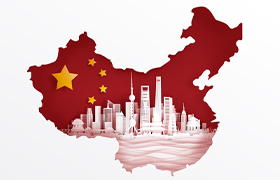
MRO Distributors vs. MRO Integrators

Introduction: MRO Outsourcing
In a growing trend among manufacturers, more number of companies is shifting towards outsourcing and retaining only the very essential within the company. The focus has been to improve quality in critical operations while reducing costs in others. The various concepts of integrated maintenance repair and operations (MRO) have been doing the rounds for quite some time now.
The projections for MRO for the next three years stand out as follows:
- Internal MRO services to decline by 3-5% per year
- External MRO services to grow by 2-5% per year (to $82 billion)
The trend towards MRO outsourcing was a result of to financial crisis of 2009. More companies focused on cost savings options rather than adding new suppliers. The trend was both supply- and demand- driven.
As the economy picked up and prices of raw materials and commodities started increasing, the cost savings promised by MRO integrators did not meet the targets and on the other hand the traditional distributors too buckled up their value added services to match up the competition with MRO Integrators.
The role and limitations of a distributor:
MRO distributors are no longer perceived as agents who deliver products. They have developed competencies to deliver and monitor long-term performance of products and equipment delivered by them in addition to supply of products. As manufacturing operations have become more complex and equipment breakdowns more costly, prompt product availability in lesser lead time has become more critical and MRO distributors play a major role in effectively delivering seamless plant operations. National distributors offer a wider selection of products under a category whereas smaller distributors offer a good product selection which matches the specific needs of local customers. The choice of typing up with local or national distributors depends upon the buyer’s requirement and the level of involvement the buyer wants from the distributor in maintaining/streamlining the smooth flow of operations inside the plant.
For example: A buyer who is using a sophisticated manufacturing process may use OEM spares frequently for the operations. So instead of buying spares from the OEM the buyer can look out for specialist distributors who deal with that type of OEM spares since the distributor markup will less than the OEM mark-up. Moreover buying OEM spares from the distributor can reduce lead time than buying directly from the OEM if the OEM is located in a foreign country.
Limitations:
Though the modern distributors are experienced enough to provide the above listed best practices, one area which differentiates them from an integrator is their inability to provide assured cost savings benefits from the procurement angle. Distributors are successful in providing service and competitive pricing. Distributors who take up the additional request of integrating services or becoming an integrator do not understand fully the complexity of MRO Stores management. Offering services in bits and pieces with a traditional focus on profits will only pull down the potential of distributors “acting” as integrators. The objective of achieving maximum TCO benefits for clients can be provided effectively by an “Integrator” who can provide a structured focus and dedication of assets to provide optimum savings for buyers.
The role of Integrators:
Integrators play a major role in helping buyers achieve lower total cost of ownership of MRO items. The integrators bring this amount of success by integrating the following three aspects:
- Strategic Sourcing
- Physical Supply Chain
- Technology Tools and Integrations
Value of Items
For a large volume buyer who has to face with complex operations in their plants day to day operations, strategic focus is needed since the value of the items used for the operations will be high and also an efficient supply chain is needed to keep a check on the availability of items for the operations. The integrators play an important role in aligning.
Services offered by the Integrated MRO Providers – In a nutshell
From taking strategic sourcing decisions to aligning physical supply chain and integrating modern e-procurement into procurement practices of buyers, the MRO Integrators do a 360 degree cover-up of all procurement related activities.
Strategic sourcing process can yield a savings of about 5-25% of annual spend and builds a collaborative approach with strategic suppliers which can help the buyer achieve future total cost reductions.
Addressing the inbound supply chain relations enables the buyer to lower total landed cost and also inventory carrying costs thereby giving a structured operations strategy.
Once the strategic sourcing and operations have been defined the MRO Integrator turns the focus on selection, deployment and full utilization of the right technology tools.
Case Study:
A paper manufacturing client was buying MRO products from thousands of suppliers for their plant operations across the United States. The buyer did not follow a centralized approach thereby each plant making its own supplier and strategy decisions. The supply base was large and diffused due to an emphasis on price and negotiation. Several suppliers were supplying the same items thereby increasing inventory levels and duplication of items.
Before Engaging MRO Integrators…
|
MRO Products |
Annual Purchase (in Million USD) |
Number of Suppliers |
|
Bearings and Power Transmission |
$150 |
150 |
|
Pipes, Valves and Fittings |
$75 |
125 |
|
Electrical items |
$80 |
90 |
|
Packaging Supplies |
$90 |
40 |
|
Machine Consumables for Special Machines |
$40 |
8 |
After Engaging MRO Integrators…
Upon engaging an MRO integrator to clean up the redundancy in the procurement process and streamline the whole process for achieving cost savings, the following cost reductions was obtained:
|
MRO Products |
Total Cost Reduction (in Million USD) |
Number of Suppliers |
|
Bearings and Power Transmission |
$25 |
1 |
|
Pipes, Valves and Fittings |
$8 |
1 |
|
Electrical items |
$7 |
1 |
|
Packaging Supplies |
$16 |
10 |
|
Machine Consumables for Special Machines |
$6 |
3 |
What was done by the MRO Integrator:
Strategic Implications: Purchases were grouped based on MRO Products and not based on plant locations.
The following Total cost reduction as a % of purchase was achieved:
Supplier reduction: 5-18%; Eliminating inventory duplication: 2-5%; Supplier generated cost reduction ideas: 3-15%; Administrative Costs: 2-3%
Year on Year cost reduction was achieved in the range of 4-9%
Technology Used: a proprietary ERP system with integrated Computerized Maintenance Management System (CMMS), Financials and Human Resources systems
The Threats…
“They cleaned it up; now we can do it ourselves”: Once the intial mess is addressed by the Integrator, companies may try to take it back inhouse and this will thwart the cost savings sustainence
Corporate Egos: A new management may altogether change an existing process
Once the company decides to break the alliance with an integrator in order to lessen the cost burden of operating with an integrator, the following can happen:
Shooting up of number of suppliers, higher transaction costs due to surge in transactions, inventory turnover goes up, and spot buying price goes up.
The most severe problem is the loss of expertise that occurs when the company staffs the MRO operations with storeroom clerks. So in the real world, the company has moved back into the hardware store business, which is far from their expertise and focus. Initially, cost savings can be reported, i.e. saving the “cost” of the integrator. Remember, the integrator showed substantial net reductions over the course of the agreement; nevertheless, the integrator’s cost of operation that produced the on-going savings is now viewed as a cost that can be recovered.
Conclusion:
Apart from providing cost savings, MRO integrators provide a holistic approach of integrating supply, service (repair and replacement) and maintenance of spare parts. Elimination of suppliers is another added advantage since MRO integrators source all the requirements from their suppliers and the buyer can have a single contract with the MRO Integrator alone for all MRO product related needs and need not enter into a contract with multiple suppliers for different MRO products.
On the other hand large national distributors who focus on specialized MRO products can still be engaged by large volume clients for leveraging the presence of these distributors in lesser know regions and thereby reducing lead times but distributors largely do not possess the one ability which differentiates them from an MRO Integrators and that is Cost Savings.
Related Insights:
View All
Get more stories like this
Subscirbe for more news,updates and insights from Beroe






